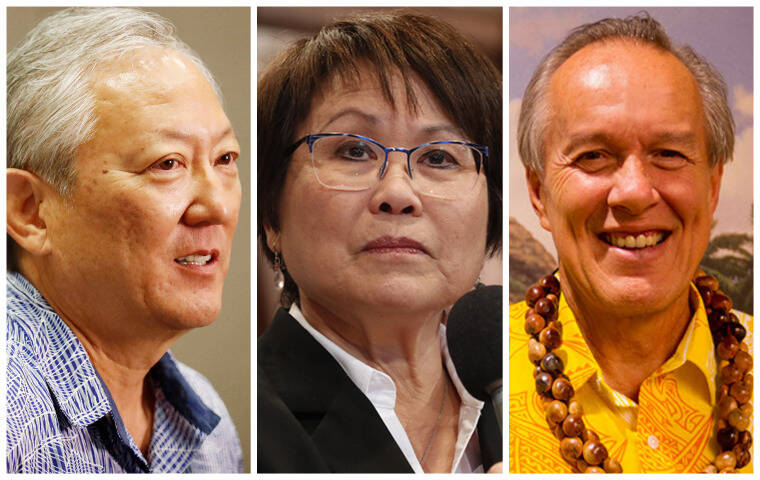A struggling football coach with a good contract usually gets fired, and bought off.
When University of Hawaii football coach Todd Graham was fired in 2017 by Arizona State University, he was still owed his full $12.8 million buyout.
School officials reported they were paying it off in installments. Arizona media said Graham was fired after his teams went 18-20 from 2015-17, a drop-off from 28-12 in his first three seasons.
In Honolulu back in the same year, then-Police Chief Louis Kealoha was allowed to leave office with a $250,000 payment in addition to his government retirement benefits while the federal government investigated him and his then-wife, deputy prosecutor Katherine Kealoha.
A total of $12.8 million may be a lot to get rid of a football coach who had a new job coaching for the University of Hawaii, but for a police chief under federal investigation, Honolulu could be just as kind, giving Kealoha a quarter of a million dollars. Probably more important, the city officials did so without asking questions.
At the time the Honolulu City Council started grumbling and hand-wringing, did it start passing resolutions demanding an investigation, writing ordinances barring the city from paying Kealoha, and calling the Honolulu Police Commission before the Council to ask what was going on? No, no and no.
Saying she was “very leery of payments” back in 2017, former Councilwoman Kymberly Pine said, “A lot of people I’ve spoken to would disapprove of any additional payout to the police chief.”
Former Council chairman Ernie Martin questioned the police commission’s decision, saying, “It’s technically not a retirement, it’s more a settlement.”
Eventually Kealoha and the Mrs. were both indicted and convicted of enough felonies to make their time in appointed office more of a crime spree than a period of public service.
Just last week we found out that the case isn’t closed.
Two of former Mayor Kirk Caldwell’s closest cabinet members — former managing director Roy Amemiya and former Corporation Counsel Donna Leong — and well-known lobbyist Max Sword, the former Honolulu Police Commission chairman, all had 6:30 a.m. meetings with the FBI last week to be arrested. The charge, according to the Star-Advertiser, was to conspire to “embezzle, steal, obtain by fraud and otherwise without authority” money from a city program receiving federal funding, and to conceal the source of the funds from the Honolulu City Council and the public.
Apparently this was the money that was paid to Kealoha for a spurious goodbye bonus.
Ken Lawson, a faculty specialist at the University of Hawaii’s William S. Richardson School of Law and co-director of the Hawaii Innocence Project, is questioning why the police commission and the council didn’t act five years ago. In a telephone interview, Lawson said that “when you look at this, based on my experience doing criminal cases,” he suspects that federal prosecutors are not stopping with the arrests of the current City Hall trio.
“Just reading the indictment, you can see there was an effort to keep the settlement from going to a Council vote. Why were they so desperate? What did Louis Kealoha have on someone to do this?” Lawson asked.
“Was this a case of trying to save the taxpayers money or was this about saving someone’s ass?”
The three charged with federal crimes have all pleaded innocent.
The question still to be answered is: Does the federal investigation end with the trio going to trial or does it continue, and how high in Hawaii’s political hierarchy could it reach?
Richard Borreca writes on politics on Sundays. Reach him at 808onpolitics@gmail.com.

